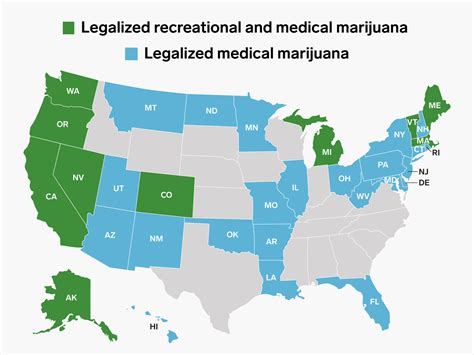In November 2012, Colorado made a significant change in its drug policy by legalizing marijuana for adults over the age of 21 through Amendment 64 to the Colorado Constitution. This groundbreaking move has led to various rules and regulations surrounding the legal use of marijuana, both for recreational and medical purposes.
Colorado’s approach to marijuana use is unique in several ways. One key aspect is the distinction between recreational and medical marijuana. While recreational marijuana is widely available in the state, the City of Colorado Springs has opted out of its sale. However, medical marijuana is still produced and sold to registered patients through licensed dispensaries. For more details on this, visit City of Colorado Springs.
Regarding the purchase and possession of marijuana, there are specific limits. Adults over 21 can buy and possess up to 1 ounce of marijuana at a time. Additionally, they can give away up to 2 ounces to another adult but cannot sell it. This rule also applies to homegrown marijuana. For more information on these laws, check out Colorado Cannabis.
Marijuana, also known as cannabis, weed, pot, or dope, contains over 100 compounds, including THC (tetrahydrocannabinol) and CBD (cannabidiol). THC is known for its psychoactive effects, while CBD is not impairing. To learn more about these compounds and their effects, the Centers for Disease Control and Prevention provides comprehensive information.
Nationally, marijuana is the most commonly used federally illegal drug in the United States, with about 18% of Americans using it in 2019. The risk of marijuana use disorder is significant, especially for those who start using marijuana before age 18. For more statistics and information on marijuana use in the U.S., visit CDC’s Data and Statistics on Marijuana.
It is also important to note that different states have varying laws regarding marijuana use. For instance, Massachusetts and New Jersey have their own sets of rules and regulations. In Massachusetts, possession of 2 ounces or less of marijuana is subject to a drug awareness program for those under 18, with the possibility of expungement of marijuana-related records. New Jersey’s Cannabis Regulatory Enforcement Assistance and Marketplace Modernization (CREAMM) Act allows for the legal sale and use of cannabis for residents 21 years and older. For further information, refer to the respective state guidelines at Massachusetts law and New Jersey Cannabis.

In summary, understanding the complexities of marijuana laws in Colorado and across the United States is crucial for both users and policymakers. As the landscape of marijuana legalization continues to evolve, staying informed about the legal stipulations and health implications is essential.